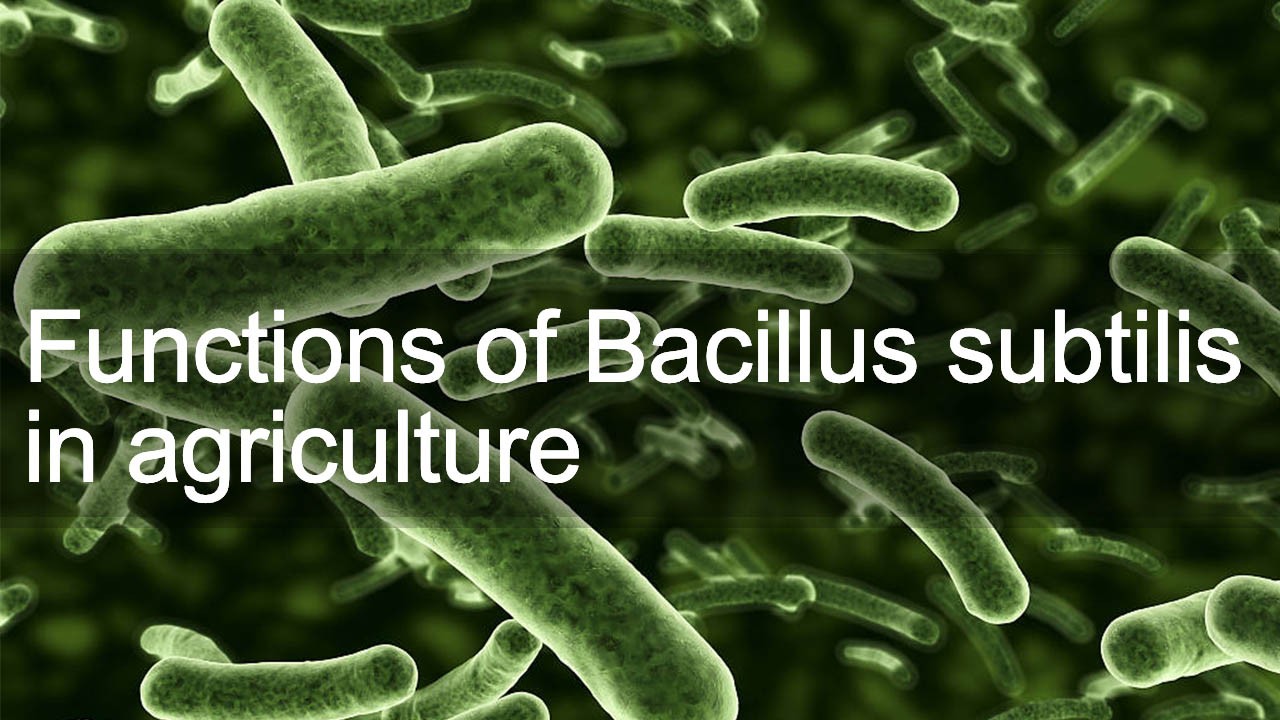
Functions of Bacillus subtilis in agriculture
Biological fertilizer is becoming more and more popular in the fertilizer market. The main effect is the active functional bacteria contained in the biological fertilizer! Most of the biological fertilizers currently on the market will add this "Bacillus subtilis"! So, what are the advantages of this bacteria? What are the benefits to crops? Let's get to know Bacillus subtilis together!
What is "Bacillus subtilis"?
Bacillus subtilis, a type of Bacillus, is widely distributed in soil and decaying organic matter, and is easy to reproduce in subtilis juice, hence the name Bacillus subtilis
The main advantage of Bacillus subtilis is that it is a mesophilic, aerobic, spore-forming rod-shaped bacterium, which is often concentrated and refined by artificial mutagenesis and submerged liquid fermentation. The bacterium exists widely in nature, is non-toxic and harmless to humans and animals, does not pollute the environment, can produce a variety of antibiotics and enzymes, has broad-spectrum antibacterial activity and strong resistance to stress. It is very effective in crops and has strong stability. Bacillus subtilis has shown very good disease prevention and production and income increasing effects on fruit trees, cotton, wheat, pepper, tomato, corn, rice, soybean, pepper and other crops.
What are the contributions of "Bacillus subtilis" to agriculture?
Bacillus subtilis grows fast, has simple nutrition, can produce heat-resistant and stress-resistant spores, and can be made into various dosage forms; it can be mixed with chemical pesticides without inactivation, and the batch production process is simple, the cost is also low, and it is convenient to apply and store. long term.
In view of this feature, Bacillus subtilis is widely used in biological fertilizers, and its main functions are reflected in:
1. When the biological fertilizer added with Bacillus subtilis acts on crops or soil, the bacteria can colonize the rhizosphere or body of the crops and play a specific fertilizer effect. It contains protease and other substances, which can decompose and inhibit the growth of germs and pests in the soil. At the same time, this strain has the characteristics of long life, low sensitivity to the environment, and long shelf life, so it is favored by dealers and enterprises. Therefore, among many functional bacteria, Bacillus subtilis is the most widely used and most functional one.
2. Bacillus subtilis can produce a variety of substances with antibacterial and bacteriolytic effects during the growth process, such as subtilisins, organic acids, antibacterial proteins, etc. These substances can inhibit the growth and reproduction of pathogenic bacteria, and even destroy the bacterial structure. Kill pathogenic bacteria.
3. After Bacillus subtilis is applied to the soil, it competes with other microorganisms for oxygen and nutrients, which is competitive and exclusive. It forms a dominant biological population in the roots of crops. In this way, Bacillus subtilis can effectively prevent the invasion of other pathogens, obtain nutrients from surrounding bacteria, and inhibit the growth of pathogenic bacteria. Bacillus subtilis can prevent and resist diseases like a vaccine. Therefore, Bacillus subtilis has a good control effect on diseases such as heavy cropping disease, root rot, and gray mold. This is why the use of biological fertilizers can reduce crop diseases.
4. Bacillus subtilis can induce plant resistance and promote plant growth: Bacillus subtilis can not only inhibit plant pathogenic bacteria, but also induce the plant's own disease resistance mechanism to enhance the plant's disease resistance. Bacillus subtilis can produce substances similar to cytokinin and plant growth hormone, which can promote the growth of plants and make plants resist the invasion of pathogenic bacteria.
5. Bacillus subtilis can greatly promote plant growth: while Bacillus subtilis prevents and resists diseases, it can also induce crops to produce indole acetic acid and other substances, increase the level of crop growth stimulants, thereby promoting crop growth and reproduction.
Chemical Engineering Consultant on Herbal Extract
7moThanks for the valuable information on Bacillus subtilis
--
1yThank you for amazing soil crops protection
Research Associate at SML Pvt Ltd
1yThis will help me
Researcher at NRC, Microbiology. CEO, Agri/Bio Serv, (Agri Soul), tel: 00201114984688
1yGreat work